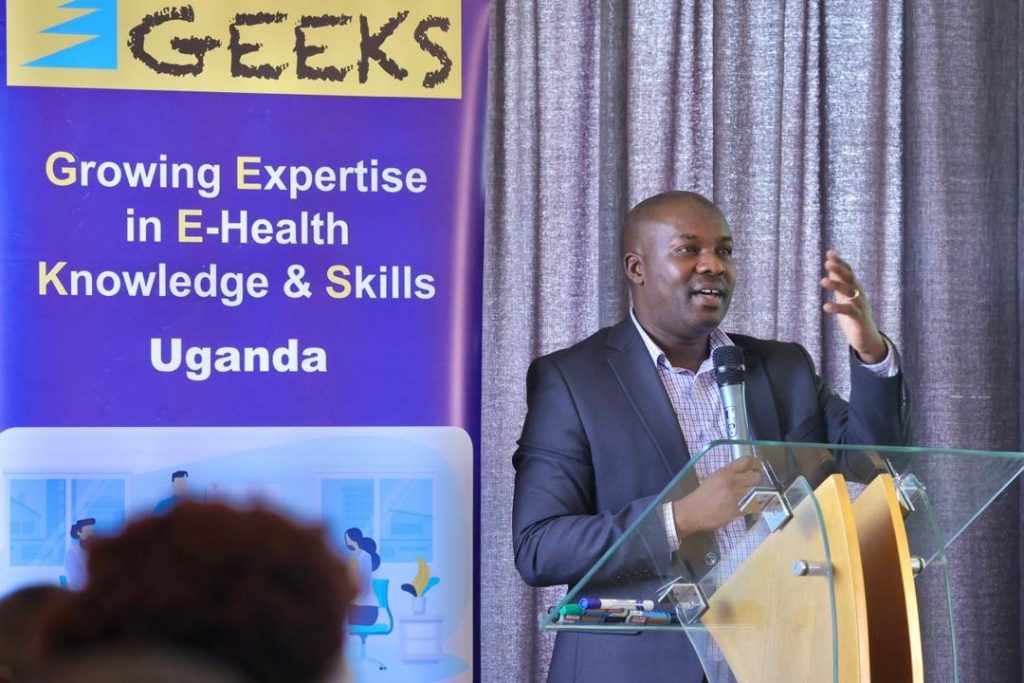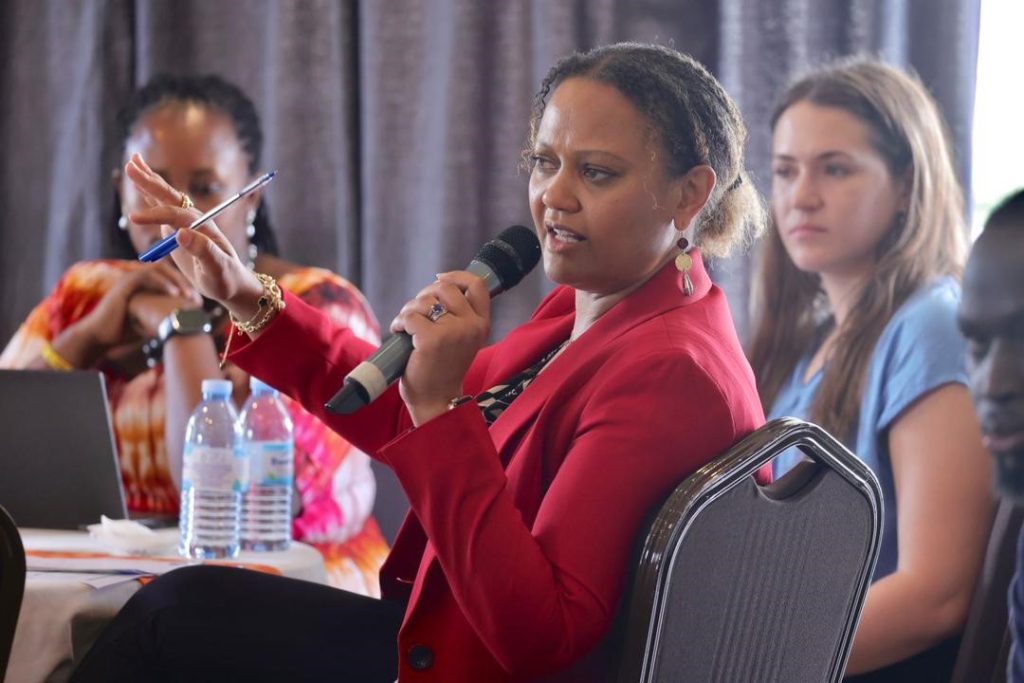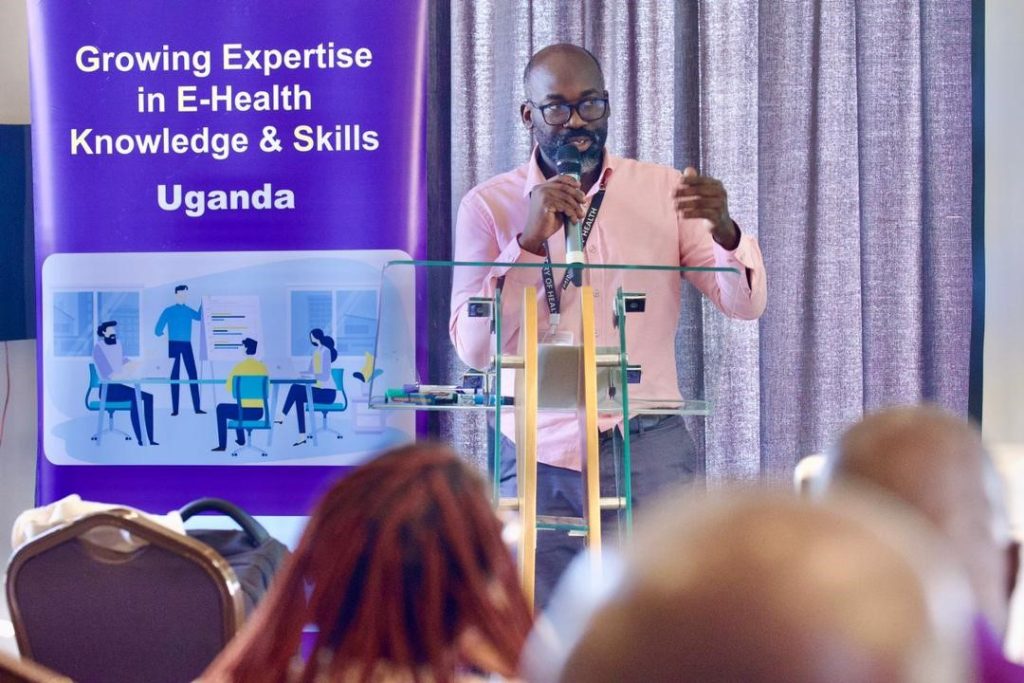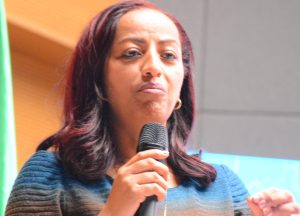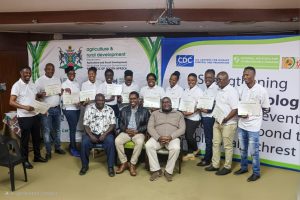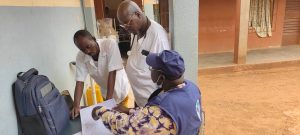Dissemination meeting celebrates achievements of GEEKS Fellowship Cohort 1 in Uganda
-
by
AFENET
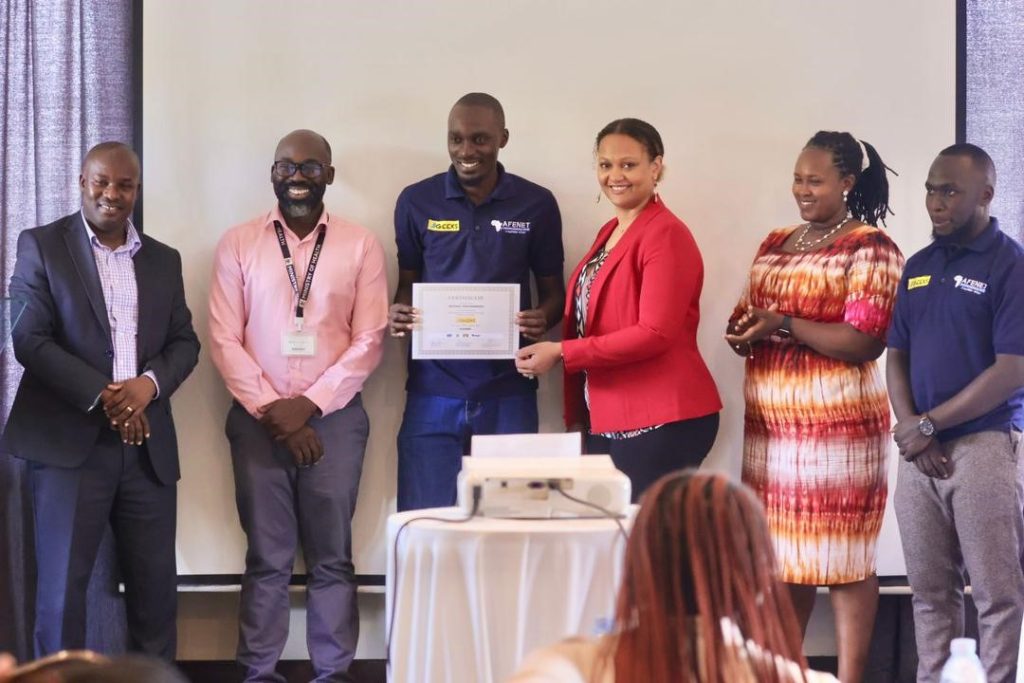
After a year-long journey marked by dedication, innovation, and collaboration, Cohort 1 of the Growing Expertise in E-health Knowledge and Skills (GEEKS) program celebrated its remarkable milestones during a dissemination meeting held in Kampala, Uganda. The conclusion of this cohort on March 7, 2024, marked not just the end of a chapter, but the beginning of a new cohort in advancing e-health capabilities across Uganda’s healthcare system.
Ms. Ester Sikare, Health Scientist at CDC Atlanta, emphasized the global significance of the GEEKS program: “Launching GEEKS in 2019 in Nigeria was just the beginning. Today, our reach spans across Ethiopia, Uganda, India, and the Philippines, reflecting our steadfast dedication. Uganda’s strides are especially commendable. But let’s remember, our focus extends beyond ourselves—it’s about safeguarding the world’s children and tallying the lives preserved.”
Cohort 1 was divided into three groups, each focusing on specific objectives and achieving notable outcomes:
Group 1: Enhancing the detection of VPDs cases through optimisation and utilisation the eider Case-Based Surveillance Reporting
The optimisation and utilisation of the eIDSR for VPD surveillance demonstrated many benefits to decision makers, including timely response to VPD cases, easy access to VPDS data, and improved district reporting. Healthcare professionals’ early use of this tool to report suspected instances is anticipated to improve timely notification and investigation of suspected cases. This effort is an essential first step towards achieving Uganda’s goal of developing a more effective and integrated disease surveillance and response system.
Group 2: Utilisation of the tickler system to improve immunisation coverage by tracking under-immunized children and linking them to immunization services
The GEEKS team implemented a tickler system in 10 health facilities and tracked and linked 419 defaulters to care in Luwero district. This was to support the Ministry of Health in improving the uptake of immunisation services and ensuring accountability of routine immunisation defaulters.
Before introducing this system, little to no defaulter tracking activities were being carried out, and some defaulters could even return to care without identification. This highlights the importance of effective defaulter tracking and documentation systems to ensure that all children are effectively tracked along the immunisation schedule.
With the addition of these tools, it has become much easier to routinely identify immunisation defaulters and determine the primary cause of defaulting within the Health facility catchment area.
Group 3: Efficiently identifying districts and health facilities with data quality and immunization program gaps to improve routine immunization programme performance
The team developed a dashboard that clearly identifies existing data quality gaps at the national, district and health facility levels. It is now possible to identify specific districts and health facilities with data quality and program gaps efficiently and inform the program for follow up action.
The dashboard has allowed a quick and more transparent process to monitor and respond to health facilities in need of program or data support.
As Cohort 1 concludes its journey, the ripple effects of its work are poised to create lasting transformations, ultimately improving the well-being of communities across Uganda and beyond.
